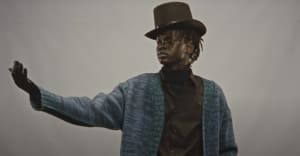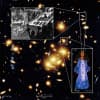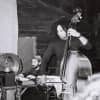On The Welfare Line With My Grandma: A Film Festival Of Forgotten Nuyorican Cinema, is happening this weekend in New York City. Set to feature six films from the ‘70s and ‘80s, the festival commences tonight at 6 p.m. at New York City’s The New School University Center with The Devil Is A Condition, and concludes Sunday evening at 5 p.m. with Natas Es Satan.
The festival was organized and curated by Brooklyn’s Giovanni Cortez — who also makes music as Standing On The Corner — with the help of Luna Olavarría Gallegos and Christian Martir. Below, Cortez details the inspiration for the film festival, the role Nuyorican cinema played in his life, how he hopes to shed light on the cultural genre, and what he hopes attendees get out of the event.
GIOVANNI CORTEZ: The conception of the film festival came from a combination of two of the biggest time consumers in my life: my affinity for the search of lost/unseen content (in a vinyl context, "digging") and my major in school of journalism and design with a focus in archiving. I spent a lot of my time growing up denying or misplacing my identity, making conscious efforts to connect with cultures other than my own due to shame. What that resulted in was an overcompensation in my adult life which I've since learned to tame, but one product of that was a milieu of what I call "cultural artifacts;” this is a collection of Puerto Rican material of all mediums (books/zines, records, film). I treat them almost as we treat imprints of dinosaur prints due to the fact that in a sense these things practically never happened. It's corny to consider the “tree falling with no one around to hear it question,” but I really do consider it in all this work I do. I acknowledge that it may also be short-sighted to reduce the value of work to how much it was seen, though this is where a lot of my work as an "archivist" stems from — the ability and will to breathe new life into things that missed in one way or another. That is the idea of the film festival.
The role that "Nuyorican cinema" has played in my life is actually in its non-existence. It didn't exist to me growing up and still only sort-of exists right now. Part of the project is to acknowledge that Nuyorican cinema isn't a recognized genre, but this is my case and claim — that perhaps should be considered one. One thing that my institution has hipped me to is this concept of a "canon." As arbitrary as it may seem, this is my proposal of a Nuyorican cinema canon, assembled from Wal-Mart $1 bin dvds, storefront flea markets, and the dustiest corners of New York City's library collections.
The Devil Is A Condition is the film that started the whole thing for me, equally on the basis of the form as well as the content. I describe it as a perfect culmination of all the things I am interested in (along with something like "I can't believe this exists”). The documentary, directed by Carlos de Jesus, explored the housing conditions and needs of the poor puerto rican and black communities together during the late ’60s and ’70s, set to the soundtrack of free jazz and poetry. Part of the film that really stuck with me was the exhibition of black and puerto rican together, due to that being my experience in New York. In New York at least, the destinies of African Americans and Puerto Ricans feel inextricably tied and I think recounting that exchange/relationship is important now more than ever especially in a place like my institution where race relations are convoluted and often end up in division.
“This is where a lot of my work as an “archivist” stems from — the ability and will to breathe new life into things that missed in one way or another. That is the idea of the film festival.”
What I hope to come from this event is a legitimization of "Nuyorican cinema" in a more official sense. We can say it exists because it’s found, can be compiled and put into a festival for the public, but what’s equally important is the conversation of maintenance and restoration. as much love I have for the “underground” or “forgotten,” maybe there is a way these original film reels can be recovered and represented. I think these films deserve it in a sense that they are both cinematically competent enough and also culturally important. Another step of that is treating this as we treat Russian cinema or French cinema institutionally; put them in a classroom, start a discourse.
I named the showing of these films, and the culmination of all the work, On The Welfare Line With My Grandma after the similar sensation that struck me while putting this together as I used to feel as a kid with her. Educated in a New York School, I got through E.S.L. and learned english enough to be the intermediary between her and the social service agency. In this analogy, the university in which I am showing these films, as well as the members of it, serve as the welfare office: two institutions in which the responsibility to transfer information correctly is a true responsibility. While the former entails the acquisition to keep fed and clothed, the latter demands for cultural security; to uphold the culture that I owe a lot of my world too.
I hope to host this again throughout the city in the summer so more dates and films to come. My ultimate goal is to be able to host all of these things in one place, whether that be a physical space or digital. I run into conflict with the word "museum," but a site in which all the music, literature, and film of the Nuyorican experience lost for all the reasons everything gets lost for people of color, can have a home and be accessible.


